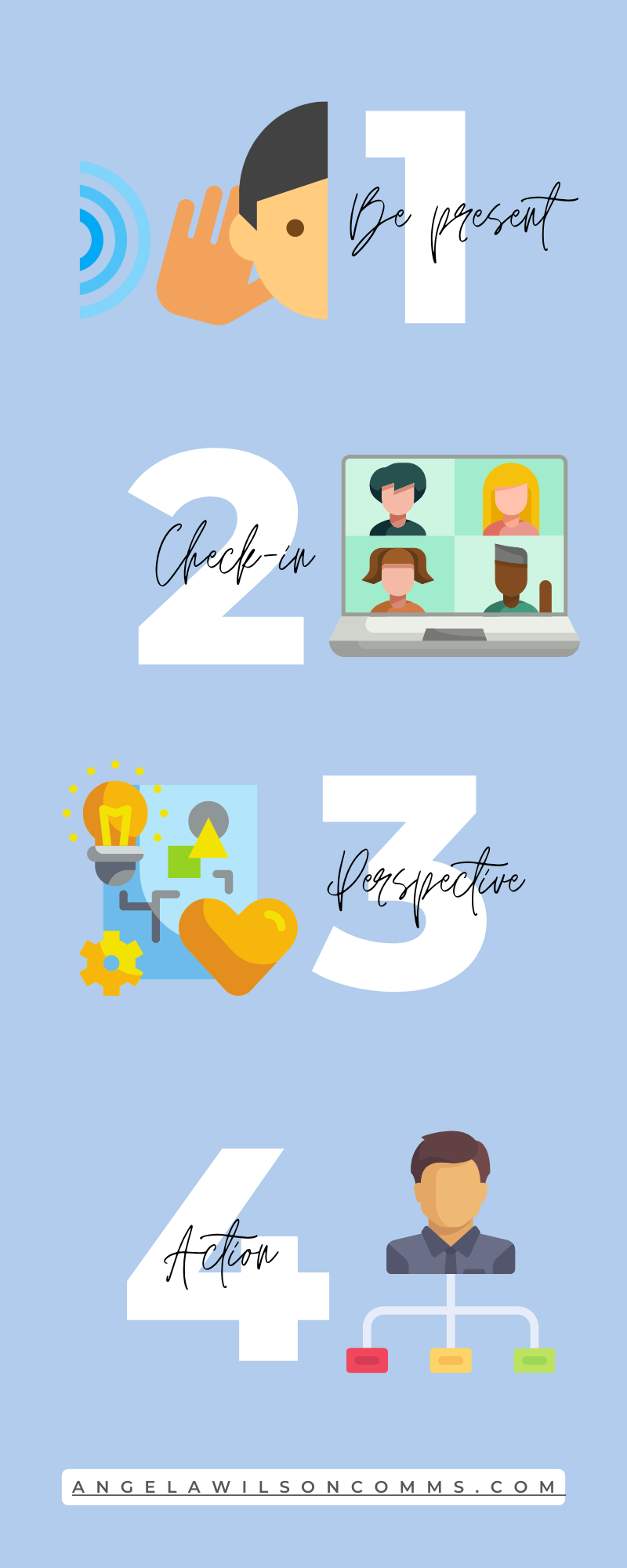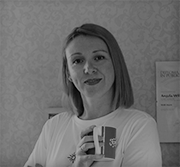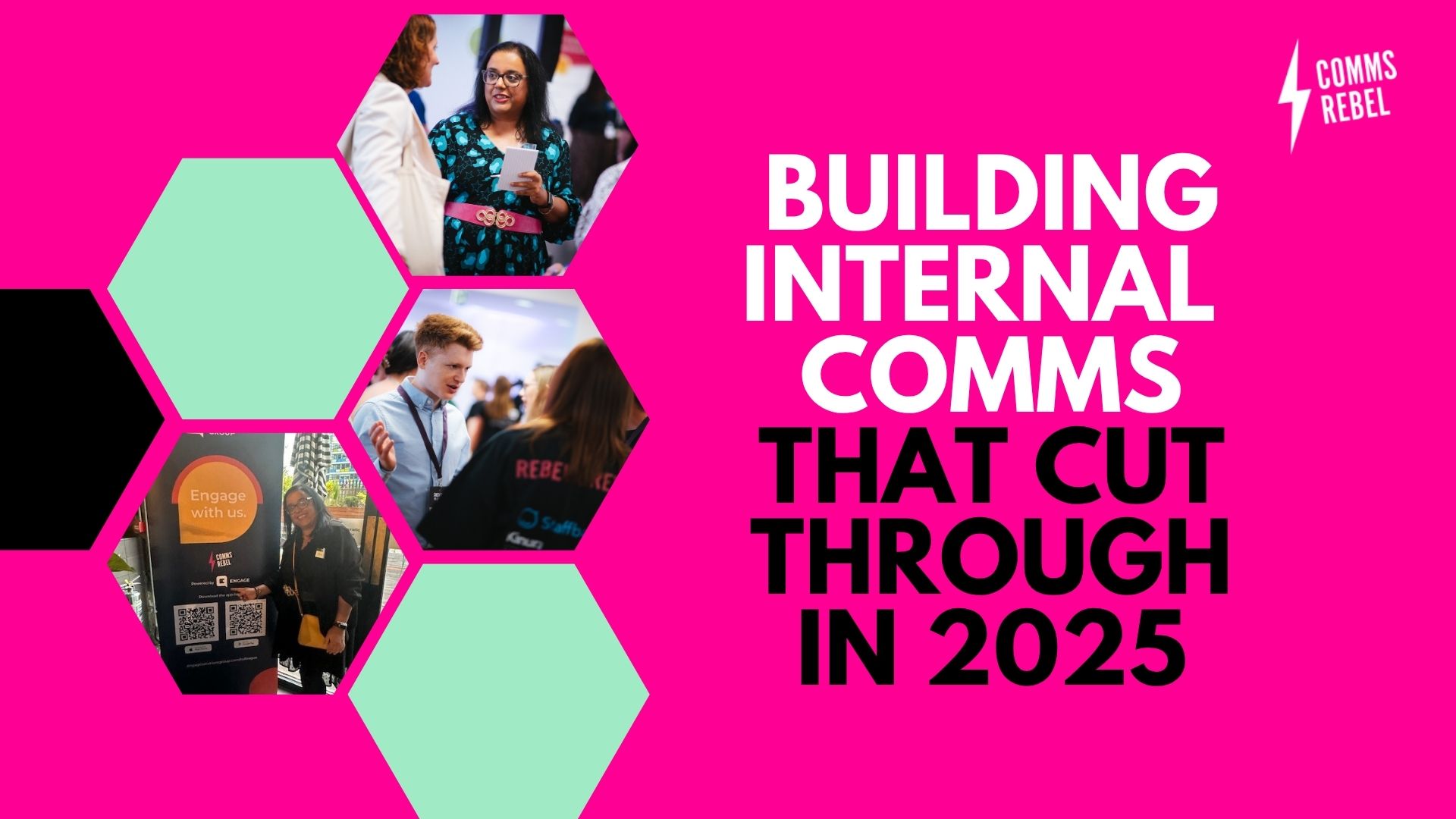In my brand new guest blog feature, I’m pleased to introduce the wonderful Angela Wilson, an experienced communicator, who has shared some great tips on how to listen effectively. It’s something we talk about frequently, but hands-on heart, how many of us do this actively? Over to Angela…
The key to great communication is not getting your message out there, it’s listening.
Cast your mind back a year ago (if you can!).
When we found ourselves plunged into a national lockdown, what did you notice on the rare occasions you left your home?
The din of traffic gave way to a breeze through the trees, the roar of planes in the sky became bird song.
We live in a noisy world and cutting through the noise is crucial, which is why I’m making a case for listening.
Only when we listen can we make an authentic connection and share messages that resonate.
Top Four Tips for Listening
1. Be present.
This is more than just ‘being there and having ears’ whether online or in-person ask questions and give listening your attention.
We’re busy people but whether you’re conducting focus groups (in person or online), asking people to complete a questionnaire or social listening – give it the emphasis it’s due.
Consider segmenting your audience so you can accurately capture voices and learn from them.
The second audiences realise a listening exercise is a tick-box, you lose credibility and their candour.
2. Check-in.
Do you really understand what’s being said? Are you just hearing what you want to hear or what your leaders want to hear?
The best way to know is to ask.
It’s a classic listening tool but say it back in your own words and ask if you’ve understood it correctly.
This works well in a conversation or focus group setting but you can use it in more formal listening exercises by adding another stage to your feedback process.
For example, use existing channels to ask: our survey respondents said the new office is a lovely environment to work in, do you agree? If the responses are wildly different to what you were expecting, maybe you haven’t been listening carefully.
3. Perspective
It’s ironic to suggest, especially if you disagree, that someone feels the way they do about something because they’re ignorant.
There are years of experience that have gone into shaping that opinion.
That perspective is gold dust when it comes to developing authentic, two-way communication.
An appreciation of why someone feels the way they do opens a rich seam of understanding.
Imagine in a workplace where there is a culture that is not supportive of change.
If you understand that these individuals have experienced several restructures over the years, it will explain a mistrust of leadership and resistance to change.
As a communications expert, you can explore how to improve that culture but also as the conscience of an organisation encourage better leadership decisions.
4. Action
Listening lacks meaning if it doesn’t precede responsive action.
Perhaps many of us can recall an occasion whatever side of the conversation we’ve been on where it came to nothing.
This kind of result in a listening process is undermining and extremely damaging.
Inaction can be salvaged through openness and honesty.
Consider a situation where stakeholders have expressed frustration with your organisation’s website, but resources aren’t available to remedy it.
This is the time to say: we hear you, we can’t do anything about it right now, but we will.
Furthermore, the best case in this conversation is that a problem-solving idea is borne of it.
When listening is done well, it won’t mean you jump from pillar to post trying to please everybody rather it will elevate your communication strategy and deliver better outcomes.
Ange Wilson is a big fan of authentic, two-way communication, which is why she set up her own freelance business. She offers small to medium enterprises and not-for-profit organisations quality and experienced communications support.
She is a member of the Chartered Institute of Public Relations, holds a Diploma in Public Relations and has been working in communications for over ten years. She started in the corporate world, journeying through the public sector before going self-employed, even though that post-Uni pub job feels like only yesterday!
Ange specialises in communication strategy and content creation, particularly enjoying the opportunity to translate a passion into a cultivated and invested audience.
Her new website is due to launch soon but until then you can connect with her on Twitter (@MrsAngieW) or LinkedIn (@angelawilsonmcipr).



